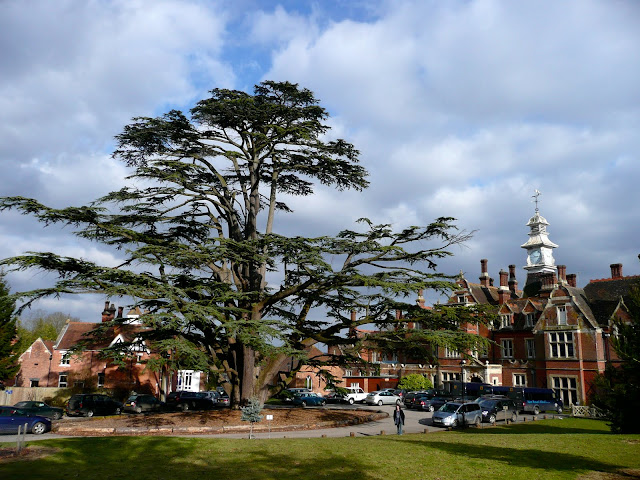Initially put off by the rather techie name for TV and radio recordings in a digital format that can be played on a computer or mobile phone, I have been slow to take to podcasts, but now understand their appeal. Inevitably, it's taken the
iPhone and the connections that make it play through a car's speakers to effect this change. I can now listen to the Economist (which has a 'voice' version) and superb programmes like Melvyn Bragg's
'In Our Time' using the fairly unprofitable time while driving to catch up - or learn for the first time - about fascinating subjects like the dispute between Newton and Leibnitz over which of them 'invented' calculus. More recently, I have been hooked by
'A History of the World in 100 Objects' and
David Reynold's 'America: Empire of Liberty'.
The New York Times commented on Radio 4's podcasts this week, writing:
“In Our Time,” a program on “the history of ideas,” is in a class of its own. Each week the host, Melvyn Bragg — a BBC veteran, whose life peerage makes him Lord Bragg of Wigton — offers a panel of academic experts, with Oxford and Cambridge heavily represented. The guests have titles like “associate professor in philosophy and senior fellow in the public understanding of philosophy at the University of Warwick.” They talk about arcane topics from history, literature, science and philosophy, throwing off casual asides on subjects like Sigmund Freud’s theory of “gain through illness” — the idea that people become neurotic because it is useful to them.
Mr. Bragg doesn’t spare the stage directions: Would you please tell us about this? And We’ll Get to That Later. But his careful questioning and quick wit underlie the brilliance of “In Our Time” — its ability to draw in listeners on subjects that they would not expect themselves to care much about, or perhaps even to be able to tolerate.
I convinced a friend to start downloading the program when I mentioned an interesting discussion of logical positivism. The next time I saw her, she told me that she was hooked and that a new episode on the Siege of Munster — which had popped up on my iPhone, but which I had not rushed to hear — was surprisingly fascinating.
Intellectuals also talk about ideas on a second BBC Radio 4 program called “Thinking Allowed,” but its focus is “new research on how society works.” The host, Laurie Taylor, interviews professors and authors on subjects that are contemporary and often a bit whimsical. There have been episodes on acquaintances — people somewhere between strangers and friends — and a phenomenon described as “laddish masculinity in higher education.”
The discussions often involve scholarly inquiry into the minutiae of everyday life, with special attention to the role of social class — a subject rarely discussed in the American news media. On one, an inquiry into the sociology of car behavior suggested that when two middle-class couples ride in a car, the owners of the car are likely to sit in the front, with the second couple in the back. When two working-class couples go for a drive, the men are likely to sit in the front and the women in the back.
Making abstruse subjects accessible to nonexperts can be a challenge, something Mr. Bragg, a self-proclaimed nonexpert, appreciates. “Thank you very much, indeed, for bringing that down to us,” he told the panel at the end of the show on logical positivism.
After a brief pause, he announced the following week’s topic: “The Ediacara Biota, pre-Cambrian life forms, which vanished 542 million years ago — were they the earliest form of life?”
Click the heading for a link to the Radio 4 podcasts.






